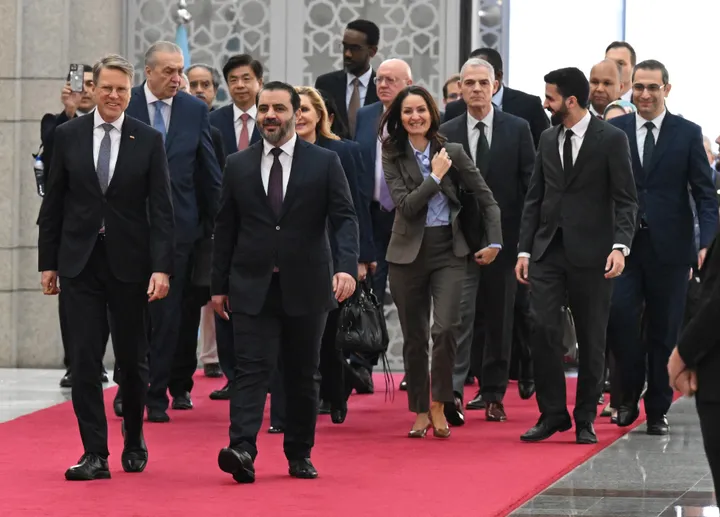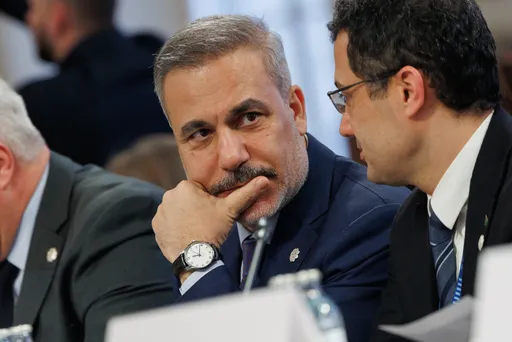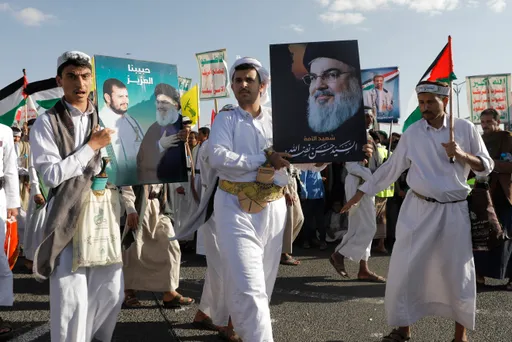Kataib Hezbollah has announced the suspension of all its military operations against US troops in the region, in a decision aimed at preventing "embarrassment" to the Iraqi government, the group said in a statement, with US President Biden indicating he had decided how to respond after the killing of three American service members in a drone strikeon a military base.
"As we announce the suspension of military and security operations against the occupation forces — in order to prevent the embarrassment of the Iraqi government — we will continue to defend our people in Gaza in other ways," Kataib Hezbollah Secretary-General Abu Hussein al Hamidawi said in a statement released by the group on Telegram on Tuesday.
Kataib Hezbollah's decision followed days of intensive efforts by Iraq's prime minister to prevent a new escalation after the attack on Tower 22, located along Jordan-Syria border, his Foreign Affairs Adviser Farhad Alaadin said.
"Prime Minister Mohammed Shia al Sudani has been hard at work in the past few days, engaging with all relevant parties inside and outside Iraq," Alaadin said in an interview.
"All sides need to support the efforts of the Prime Minister to prevent any possible escalation," he added.
Iran's denial
Founded in the aftermath of the 2003 US-led invasion of Iraq, Kataib Hezbollah is one of the elite Iraqi armed factions closest to Iran.
Iran has denied involvement in the attacks by Iraqi groups, saying all members of Iran's "Axis of Resistance" plan and execute operations by themselves.
Baghdad has condemned the attacks while also saying regional escalation would continue as long as Israel continues its brutal war on besieged Gaza.
US Defence Secretary Lloyd Austin vowed on Monday the US would take "all necessary actions" to defend its troops after the deadly drone attack, even as President Joe Biden's administration stressed it was not seeking a war with Iran.
Three US troops were killed in a drone attack on Sunday that the Pentagon said bore the "footprints" of Kataib Hezbollah, though a final assessment had not yet been made.
'Actions speak louder than words'
The Pentagon declined direct comment on a Kataib Hezbollah's statement, saying only, "actions speak louder than words."
Pressed on the matter, Pentagon spokesperson Brigadier General Patrick Ryder said there had already been three attacks against US forces in the region since a January 28 drone attack on a base in Jordan that killed three soldiers and wounded more than 40 troops.
He suggested a US response would follow.
"On the statement that's out there, I don't think we could be any more clear that we have called on the Iranian proxy groups to stop their attacks. They have not, and so, we will respond in a time and manner of our choosing," Ryder told a news briefing.
"When I say actions speak louder than words, you know, there [have] been three attacks, to my knowledge, since the 28th of January. And I'll just leave it there."
Meanwhile, Biden told reporters that he decided on a response to the attack without giving details, while blaming Iran for the attack.
"I don't think we need a wider war in the Middle East. That's not what I'm looking for," he added when asked about fears that taking on Iran could inflame a broader conflagration.
"I do hold them [Iran] responsible, in the sense that they're supplying the weapons to the people who did it."
"It's very possible that what you'll see is a tiered approach here, not just a single action but potentially multiple actions," National Security Council spokesperson John Kirby told reporters aboard Air Force One.
The Kremlin, a close ally of Tehran, on Tuesday called for de-escalation in the Middle East.
"In our view, the overall level of tension is very alarming and, on the contrary, now is the time for steps to de-escalate tensions," Kremlin spokesman Dmitry Peskov told reporters in Moscow.
China also warned against a "cycle of retaliation" in the Middle East.
























